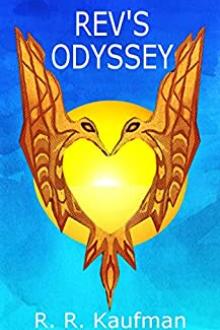Genre Fairy Tale. Page - 2
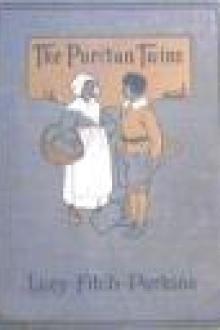
, ye 'llhave to bail her out. Besides," he added whimsically, looking up atthe sky, "there 's another squall coming on, and two at a time is toomany for any sailor. If I 'm to cast you up on the shore same as thewhale, ye 'll have to tell me which way to go, and who ye are."
"Our father is Josiah Pepperell," answered Dan, "and our house isalmost a mile back from shore near Cambridge."
"So you 're Josiah Pepperell's children! To be sure, to be sure! Mighthave known it. Ye do favor him some," said the fisherman. "Well! well!The ways of the Lord are surely past finding out! Why, I knew yourfather way back in England. He came over here for religion and I camefor fish. Not that I ain't a God-fearing man," he added hastily,noticing a look of horror on Nancy's face, "but I ain't so piousas some. I 'm a seafaring man, Captain Sanders of the Lucy Ann,Marblehead. Ye can see her riding at anchor out there in the bay. Ihave n't set eyes on your father since he left Boston and settled inthe back woods
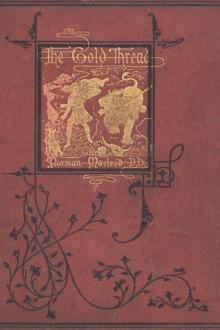
han Eric. "Now," said the old woman gruffly, when she took away the remains of the supper, "you have ate what would do me for a week. You won't starve, Master Prince. Go to bed." The old woman left him, but suddenly returning, she discovered Eric on his knees. As he rose, she scoffed and jeered him, and asked, "Do you always say your prayers?" "Yes, always," replied the boy. "Who taught you?" "My mother, who is dead." The old woman heaved a deep sigh, but the boy did not know why. Perhaps she used to pray when she was a little girl herself, and had given up speaking to God, or even thinking of Him, and so had become wicked; or perhaps she thought of some child of her own whom she had never taught to pray. She soon went away without speaking a word more, and Eric was left in darkness. He looked out through the narrow window of his room, but could see nothing but black clouds rushing over the sky. Far down he heard a stream roaring, and the wind, which now blew a gale, came booming over the tree-tops, and howli

rades, while they were standing in the quagmire.
"So it is," said the other boys. "What a pity we have no betterplace to stand on!"
On the dry land, not far from the quagmire, there were at thattime a great many large stones that had been brought there to beused in building the foundation of a new house. Ben mounted uponthe highest of these stones.
"Boys," said he, "I have thought of a plan. You know what aplague it is to have to stand in the quagmire yonder. See, I ambedaubed to the knees, and you are all in the same plight.
"Now I propose that we build a wharf. You see these stones? Theworkmen mean to use them for building a house here. My plan is totake these same stones, carry them to the edge of the water, andbuild a wharf with them. What say you, lads? Shall we build thewharf?"
"Yes, yes," cried the boys; "let's set about it!"
It was agreed that they should all be on the spot that evening,and begin their grand public enterprise by moonlight.
Accordingly, at the appointed

me come in."
To which the Pig answered, "No, no, by the hair of my chinny chin chin."
"Then I'll huff and I'll puff, and I'll blow your house in!" said the Wolf. So he huffed, and he puffed, and he blew his house in, and ate up the little Pig.
The second Pig met a Man with a bundle of furze, and said, "Please, Man, give me that furze to build a house"; which the Man did, and the Pig built his house. Then along came the Wolf and said, "Little Pig, little Pig, let me come in."
"No, no, by the hair of my chinny chin chin."
"Then I'll puff and I'll huff, and I'll blow your house in!" So he huffed and he puffed, and he puffed and he huffed, and at last he blew the house down, and ate up the second little Pig.
The third little Pig met a Man with a load of bricks, and said, "Please, Man, give me those bricks to build a house with"; so the Man gave him the bricks, and he built his house with them. So the Wolf came, as he did to the other little Pigs, and said, "Little Pig, l

Don't walk over that way."
"Yes, I shall. Mr. Rose seems to be coming this way, and I shall do the neighbourly thing and have a chat with him."
"Why, Father, you don't know him."
"That doesn't matter between next-door neighbours, at least between the men of the houses. Come along, and scrape acquaintance with the little girl. I think she looks pretty."
Dolly started, then a sudden fit of shyness seized her, and she stood stock-still.
"I can't," she murmured; "oh, Father, please don't ask me to!"
"All right, dear; don't if you don't want to. Run back to the house. I'm going to speak to Mr. Rose."
And that's how it happened that as the two men neared each other, with greeting smiles, the two girls, started simultaneously, and ran like frightened rabbits away from each other, and to their respective homes.
CHAPTER II
DOTTY ROSE AND DOLLY FAYRE
A few days passed without communication between the two
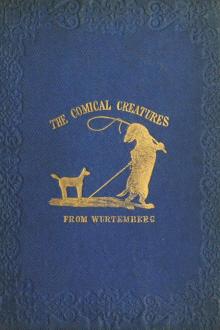
een arrested, and took young Ferret home with him to consult about their future conduct.
[Illustration: LONGTAIL TEACHING THE YOUNG RABBITS ARITHMETIC.]
It would have amused you, could you have heard all the plans discussed by these young lovers for their joint benefit; how the one talked of his darling Miss Weasel, and the other of his dear Miss Pussy; how they agreed that in matters of love every thing was allowable; and how they swore eternal friendship to each other throughout their lives.
Two days afterwards it was known all over Holm-wood that the fair Miss Weasel had eloped with Longtail Marten. Mrs. Goose and the four Miss Goslings were full of the information for every one they met. It was the finest piece of scandal they had known for years. "Only think," said they, "after all her engagement to young Doctor Ferret, to go and take up with the schoolmaster; and all, forsooth, because Old Marten is rich!"
But scarce had the first news of Miss Weasel's extraordinary behaviour
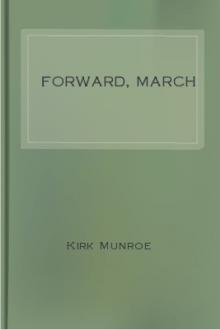
's laughing face became gravewhenever the subject was mentioned, but the young man was not to bemoved from his resolve.
Mardi Gras came and passed, but Ridge, though escorting his sister andcousin to all the festivities, took only a slight interest in them. Hewas always slipping away to buy the latest papers or to read thebulletins from Washington.
"Would you go as a private, son?" asked his father one evening when thesituation was being discussed in the family circle.
"No, no! If he goes at all--which Heaven forbid--it must be as anofficer," interposed Mrs. Norris, who had overheard the question.
"Of course a gentleman would not think of going as anything else,"remarked Dulce, conclusively.
"I believe there were gentlemen privates on both sides during the CivilWar," said Spence Cuthbert, quietly.
"Of course," admitted Dulce, "but that was different. Then men foughtfor principles, but now they are going to fight for--for--"
"The love of it, perhaps," suggested the girl from K

it seemed to her as if this solemn-eyed child purposely misunderstood, and mocked at her attempts to lead unwilling feet along the path of learning, and she was at a loss to know how to deal with the sprightly elf who danced and flitted about like an elusive will-o'-wisp. The fact that she was the University President's granddaughter was the only thing that had saved her thus far from utter disfavor in the eyes of her teacher; but now even that fact was lost sight of in face of the child's repeated misdemeanors and flagrant inattention. She should be punished. It was the only way out.
Drawing her thin lips into a straight, grim line to express her disapproval, Miss Phelps repeated, "Peace Greenfield, you may remain after school."
The gong rang at that instant, the notes of the piano echoed through the building, and surprised, dismayed Peace, after one searching look at her teacher's face and a longing glance out into the bright sunlight, sank into her seat and watched her comrades march gleefull

you to His service."
"Am I going to be with you always, Mrs. Heedman?" cried Charlie, opening his eyes very wide.
"Yes, I hope so," she answered. After a little more talking, principally on Charlie's side, who confided to her his private opinion of the cross Mrs. Wood, and his pleasure to think he was not going back to her any more, Mrs. Heedman left the room, and Charlie went to sleep.
CHAPTER III.
ADELAIDE ROW.
The house of the Heedmans was the end cottage of a long row, built for and occupied by the miners employed at the colliery that you might see in the distance. There were several rows of these cottages, but Adelaide Row, in which the Heedmans lived, was certainly the best in appearance. It was farthest from the mines, and was sheltered from the coal dust by its less fortunate neighbours. The houses looked cleaner and brighter altogether, and the little gardens flourished better.
John Heedman's ga
